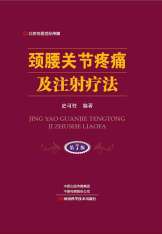
主要责任者: 史可任
责任方式: 编著
出版者: 河南科学技术出版社
出版地: 郑州
字数: 699 千字
页码: 1-856
开本: 32
中图分类号: ①R681.505②R684.05
语种:中
定价:118.00
出版时间:2018-10
丛书多卷书否:是
丛书名:北京名医世纪传媒
书目简介:本册工具书是北京名医世纪传媒之一,共收录288条词条。
| 词条 | 颈腰关节疼痛及注射疗法 |
| 类别 | 中文百科知识 |
| 释义 |  主要责任者: 史可任 责任方式: 编著 出版者: 河南科学技术出版社 出版地: 郑州 字数: 699 千字 页码: 1-856 开本: 32 中图分类号: ①R681.505②R684.05 语种:中 定价:118.00 出版时间:2018-10 丛书多卷书否:是 丛书名:北京名医世纪传媒 书目简介:本册工具书是北京名医世纪传媒之一,共收录288条词条。 |
| 随便看 |
开放百科全书收录579518条英语、德语、日语等多语种百科知识,基本涵盖了大多数领域的百科知识,是一部内容自由、开放的电子版国际百科全书。